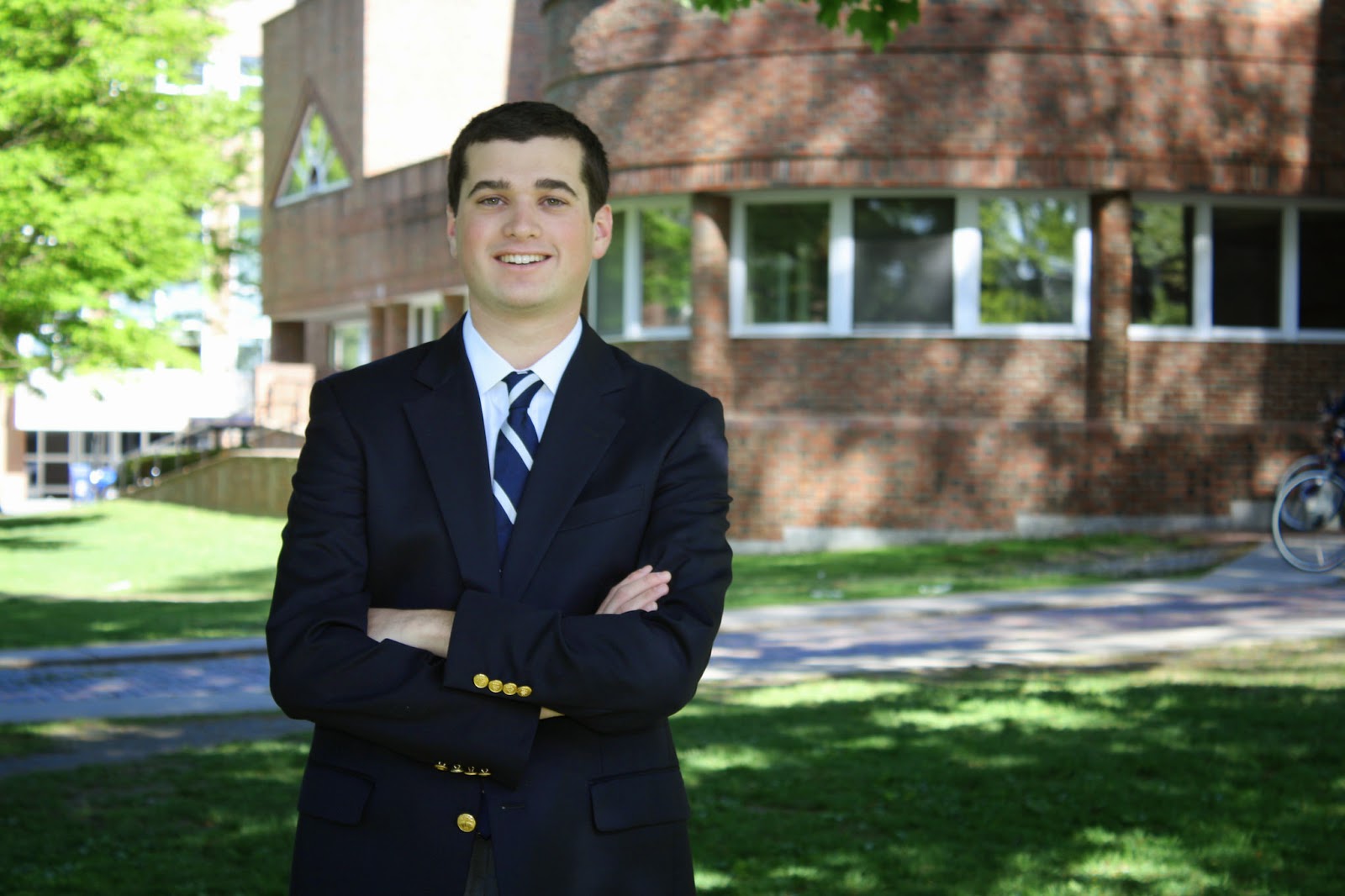- Public Policy
- Leadership
- Funding
- News & Events
- About the Center
Back to Top Nav
Back to Top Nav
Back to Top Nav
Back to Top Nav
 |
| Student Intern: Logan Brog '15 |
Internship Organization:
Institute for the Study of War (ISW) – Washington, DC
How would you describe your employer in one paragraph? What’s the elevator pitch?
The Institute for the Study of War is a think tank that researches and analyzes security in regions critical to American defense policy. ISW provides actionable information on kinetic activity, potential threats, and transnational militant networks in its portfolios including Afghanistan, Iraq, Lebanon, and Syria. All research is open source. ISW research is widely consumed in the defense community, the diplomatic community, and those who study Central Asia and the Middle East.
What are your specific responsibilities in the organization?
I am a Lebanon Research Intern for the Institute. In the morning, I brief ISW analysts and leadership on significant kinetic activity in Lebanon. I then prepare a CCIR, or Commander’s Critical Information Requirement, based on our Priority Information Requirements for Lebanon. The CCIR is a concise, well-sourced articulation of all significant activities that decision-makers would need to know to make sound policies. After this, I enter political and security developments into Palantir, an innovative software program that allows us to identify and track complex security trends. Finally, I write updates on changes in Lebanon’s security situation.
How did you feel on the first day of your internship?
I was incredibly excited. All of the research interns are clustered in one area of the office, and you can hear interns from other teams discussing everything from new clashes in their portfolios to plotting whether rebels could get from one side of a country to another given their ground lines of communications. Interns are never assigned “busy work” at ISW, so I began researching security in Lebanon on the first day.
What is your favorite part of the internship so far?
Studying security in one territory means that you understand everything from the region’s history to human terrain to highway routes. It is really satisfying to respond to a question from leadership that demonstrates that you understand what is happening on the ground. I have also thoroughly enjoyed getting to know all of the other interns. Many of us have spent time in the same areas of the world, and we frequently compare notes on what is happening across borders to make sure that looking at one country does not prevent us from identifying important transnational trends.
What challenges have you faced so far?
The most challenging part of this internship has been adjusting to a work environment that uses dozens of military acronyms and words that I did not know before starting at ISW. At the beginning, I had to look them up online. I am now more familiar with them. Additionally, four days into my internship, the Islamic State of Iraq and ash-Sham (ISIS) began its northern Iraq offensive. This required everyone to work on our assigned portfolios and Iraq at the same time, which was at first difficult to balance.
What do you hope to achieve by the end of your internship?
I hope to get a better understanding of what I would like to do after graduation, learn more about conflict and war, and to publish something I have written for ISW.
What have been some practical lessons you've learned in the day-to-day life of your internship?
Even though I live closer to the Capitol South metro stop, it is much faster to take the metro from Union Station in the morning. The Red Line from Union Station stops far fewer times to go to the same general area.